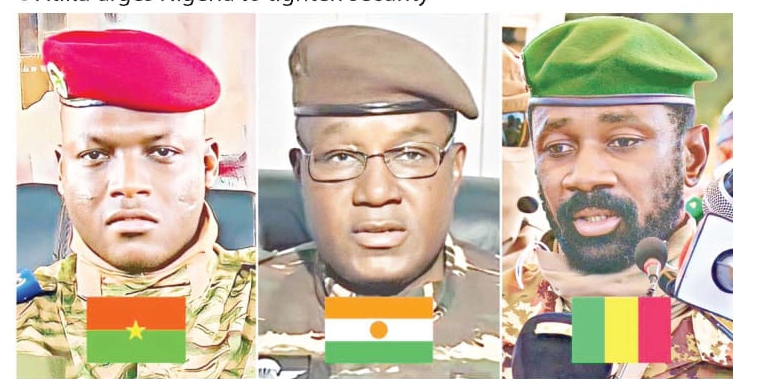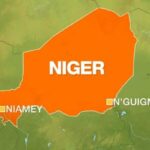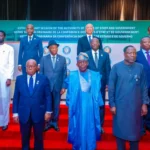Mali and Burkina Faso said Monday they had sent ECOWAS “formal notice” of their withdrawal from the West African bloc, with Niger expected to follow.
The military regimes in all three countries had announced plans to withdraw from the West African bloc, accusing it of posing a threat to their sovereignty.
The foreign affairs ministry in Mali showed AFP a copy of the letter it sent to ECOWAS, while Burkina Faso’s official news agency reported it had sent an official notice.
No information emerged from Niger, but the statements from its two neighbours stressed the common character of their move.
ECOWAS said earlier in a statement that it was awaiting “formal and direct notification” from the countries.
Under the bloc’s statutes, withdrawal can’t take effect for at least a year after official notification.
Mali, Burkina Faso and Niger were founding members of ECOWAS back in 1975, but the regional group has imposed sanctions on them following military coups that overthrew elected civilian governments.
On Sunday, the trio – who have formed an Alliance of Sahel States (AES) – jointly said ECOWAS had come “under the influence of foreign powers, betraying its founding principles” and was a “threat to member states and peoples”.
Regional powerhouse Nigeria issued a statement late Monday expressing sadness over the three countries’ departure from the bloc which it hosts.
“Nigeria stands with ECOWAS to emphasise due process and our shared commitment to protect and strengthen the rights and welfare of all citizens of member states,” a foreign ministry statement read.
It added that Nigeria had worked “in good faith to reach out to all members of the ECOWAS family to resolve the difficulties we face” but that it was “now clear” that not all members shared “the same good faith”.
“Instead, unelected leaders engage in a public posturing to deny their people the sovereign right to make fundamental choices over their freedom of movement, freedom to trade and freedom to choose their own leaders,” the statement added.
Nigeria said it remained “open for engagement” with Burkina Faso, Mali and Niger.
It also appealed to the international community to continue to extend its support for ECOWAS and its vision of closer regional partnership, cooperation and integration.

 Join Daily Trust WhatsApp Community For Quick Access To News and Happenings Around You.
Join Daily Trust WhatsApp Community For Quick Access To News and Happenings Around You.


